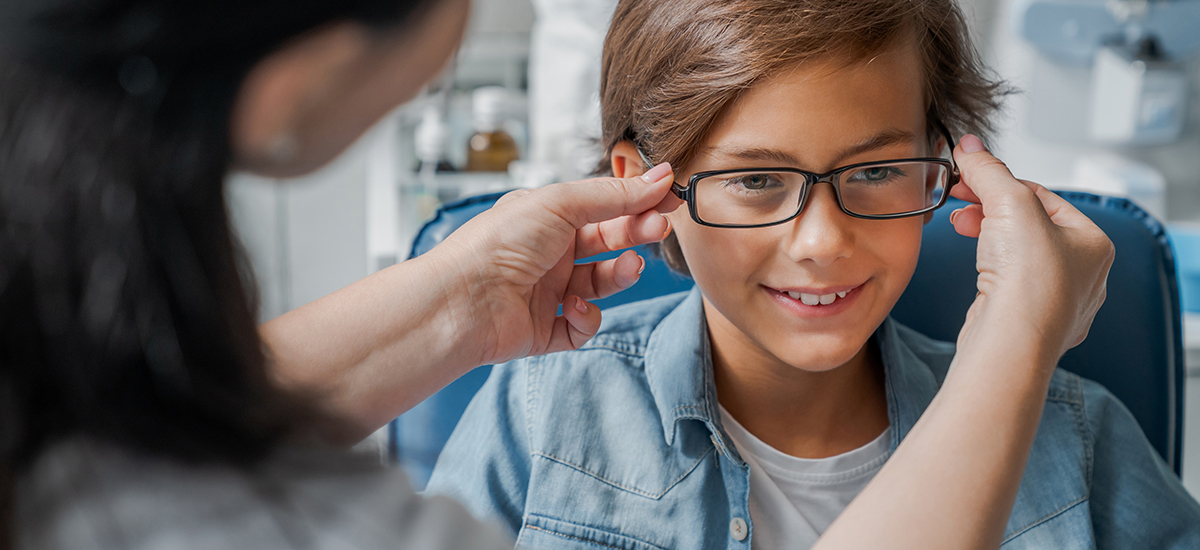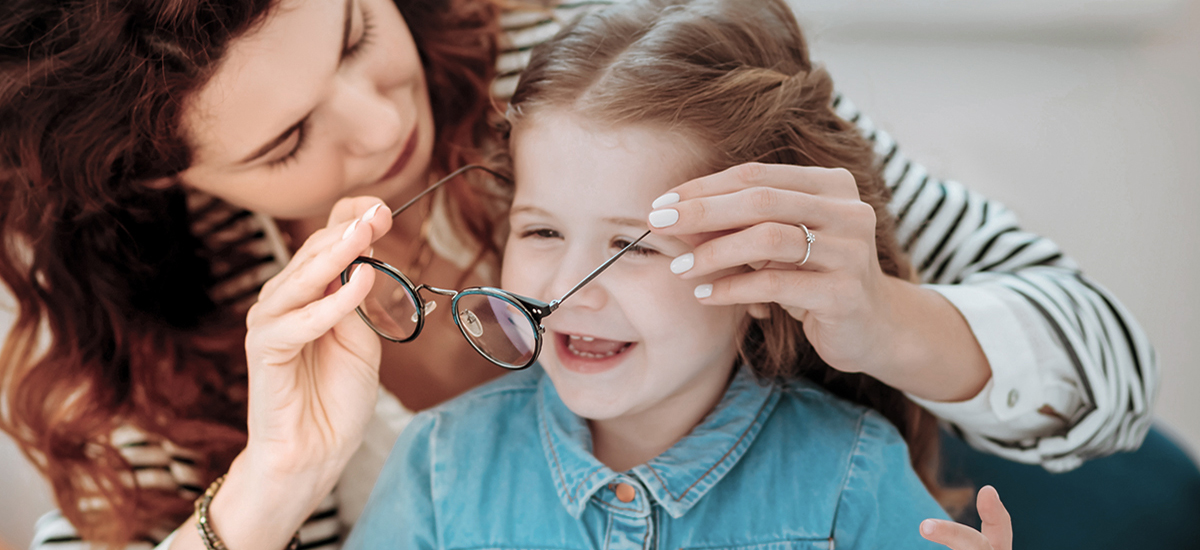Does Wearing Glasses Improve Eyesight?

If you ask us, glasses are one of the world’s best inventions. They can make someone with poor vision see crystal clear, help people who struggle to see far away, safeguard your eyes from ultraviolet light, and even protect your eyes from the damaging effects of blue light.
Most prescriptions are good for at least a year, but your vision can change over time, which is why regular eye doctor appointments are essential. Your eye doctor can monitor these changes over several years, ensuring you get the best prescription for your needs.
However, even though your eyesight can worsen over time, you might be curious about the question, “Does wearing glasses improve eyesight?” Today, we’re going to dive in to help you better understand what glasses do for your eyes and how exactly they can help you.
Does wearing glasses improve eyesight?
Yes, wearing glasses does improve eyesight--but only while you’re wearing them. To improve your vision without glasses, you’d need to fix the cause of your vision issues, which could mean altering your physical eye.
If you’re farsighted, for instance, your cornea may have a limited curving pattern, which keeps your eyes from refracting light at the correct level. Unless you grow out of your refractive error, the way to fix it would be to adjust the curve.
Glasses can help your vision by magnifying your field of view to make it easier to see things close up, but they won’t get rid of the small curve size. They’ll work with it to provide you with the best visual acuity, at least while you’re wearing corrective eyewear.
In other words, your lenses will correct your vision based on your prescription. However, when you remove your glasses, your vision may revert to normal.
Keep in mind that your glasses can correct your vision to 20/20 in some cases (or better), but it depends on your eyes. For instance, if you have 20/70 to 20/160 vision while wearing glasses, you might have low vision, which may require extra steps or special lenses to improve your eyesight.
Also, your eyesight can deteriorate as you get older due to presbyopia. Regular comprehensive eye exams can ensure you get the help you need for your eyes before your symptoms become too severe.
Does wearing glasses ever make your eyesight worse?
Wearing the wrong prescription can indeed make it harder for you to see. For instance, if you weren’t feeling well at your eye exam, got distracted, and answered a few questions incorrectly, you may end up with the wrong prescription. That can affect your eyes almost immediately.
For instance, let’s say you got a prescription for nearsightedness. However, you’re actually farsighted. Naturally, it’s going to feel uncomfortable to wear your glasses, and you may find that it’s actually more challenging to see with your glasses than without. That’s why it’s important to answer honestly during your eye exam and ensure you’re feeling okay before going in.
If you don’t wear your glasses, will your eyesight get worse?
Going without glasses will not harm your eyes, but it can bring back your vision loss symptoms. Farsightedness symptoms may include strained or tired eyes after overusing your near vision. Agitation and headaches are also common.
You may have noticed that since you got glasses, many of these symptoms have disappeared. However, by not wearing glasses, the effects of your refractive error or other eye issues may return.
For this reason, we suggest wearing your corrective eyewear per your eye doctor’s recommendations. They’ll detail the frequency of when to wear glasses after your eye exam. If you’re concerned that you can’t wear glasses all the time, don’t worry, as you might not have to.
Our team can also see if you’re eligible for contact lenses if you prefer less-conspicuous eyewear. For Eyes offers several options, including daily wear, extended wear, toric, and more, giving you the best vision correction with the most comfortable feel.
If I stop wearing my glasses, will my eyes adjust?
Generally, if you quit wearing your prescription eyewear, your vision will go back to normal once you take it off. However, this can vary by person.
To help keep your vision up to par, it’s important to wear your glasses based on your eye doctor’s instructions, whether that’s full time or only while using the computer. That way, you can get the full benefits of corrective eyewear and not have to worry about vision loss symptoms returning.
Can glasses correct vision to 20/20?
Absolutely! Prescription eyewear can restore your vision to 20/20 as long as you keep it on based on your eye doctor’s instructions. Of course, as we mentioned above, the 20/20 vision might be short-lived if you choose to take your glasses off too often or not wear them at all.
How to Improve Your Eyesight When You Have Glasses
Here are some pointers if you wear glasses and want to make your eyesight even better:
- Eat eye-healthy foods. That includes plenty of lutein and zeaxanthin, vitamin C, vitamin E, essential fatty acids, and zinc. Some of the best foods for your eyes include broccoli, strawberries, oranges, nuts, salmon, and red meat.
- Don’t forget sunglasses when outdoors. Yes, you should wear your prescription eyewear inside and outside. However, it’s also important to wear sunglasses when you’re outside to protect your eyes from the sun. (Did you know you can get prescription sunglasses? Find out more here.)
- Get your prescription checked every year. Getting an annual eye examination is vital to see how your vision changes over time. If you want to improve your eyesight, it’s important to keep your prescription current.
Summary: Does wearing glasses make your eyes better?
If you wear corrective lenses, you might wonder whether wearing glasses does improve your eyesight after all. The answer? Yes, it does. However, there’s no evidence that prescription lenses can affect your physical eye or the cause of your vision loss symptoms.
While wearing glasses, you can expect better vision since your glasses will correct your refractive error or other eye issues. If you choose not to wear your glasses, some vision loss symptoms can occur, so we recommend wearing your eyewear as advised by your optometrist.
The bottom line? If you want to improve your vision, glasses are an excellent choice. However, they’re temporary, meaning that they won’t fix your eyes--only help your eyesight while you’re wearing them.
Do you have any other questions about wearing glasses? Our team would love to answer them for you.
This blog was originally published on April 20, 2020, and expanded in August 2022.
Shop at For Eyes for your next pair of glasses.
Show off your unique style, and browse our wide variety of frames from your favorite brands for men, women, and kids. Stop by your local For Eyes, or order online at your convenience.












